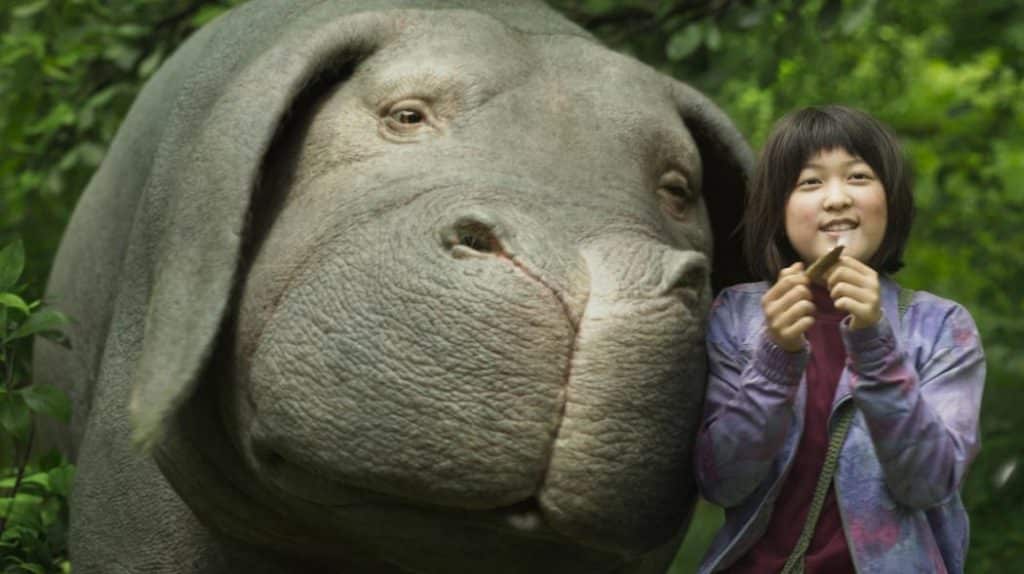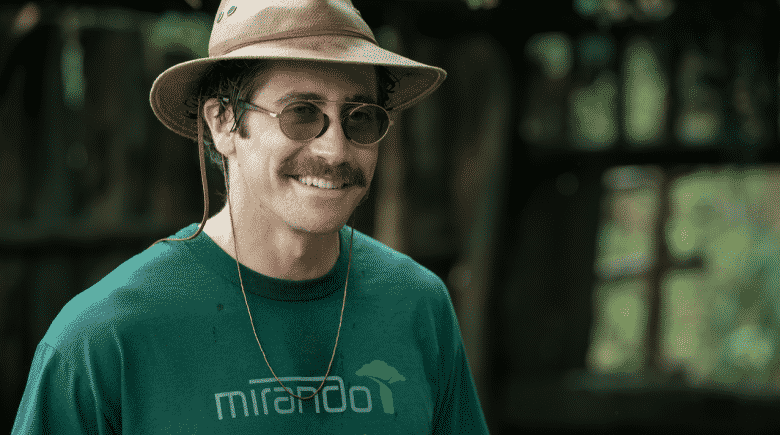Despite not getting the opportunity to work with big budgets, Bong Joon Ho continues to prove himself as one of the best directors in the industry. Films such as The Host, Mother, and Snowpiercer have displayed Ho’s immense ability of building interesting worlds, while crafting exciting and insightful films.
Instead of being sucked into the studio system, Ho is instead teaming up with Netflix for his latest feature Okja. Set in a somewhat dystopian reality, the film follows a corporation which has produced 26 super pigs to fight world hunger. When the cooperation takes a super pig from a local farm girl Mija, she goes on a chase to save her pig Okja.
With Okja, Bong Joon Ho continues to push the boundaries of what to expect from modern filmmaking. While the results are somewhat uneven, Okja is a spectacle of radical ambition, an experience that has equal entertainment value as it does dramatic merit.
As a follow-up to Snowpiercer, Ho features more of his impressive ability to build a captivating world. As a writer and filmmaker, he crafts films with a insightful eye, while pushing his budget to the limit. The world in Okja isn’t radically different from our own, making Ho’s searing commentary on animal rights and corporate America feeling timely as ever.
Audiences are hard-pressed to find a film that features Okja’s level of audacity. Ho certainly rides the line when it comes to tone, mixing some widely campy moments along with a heavy thematic message. I can see a lot of people complaining about the tonal balance, but the deftness of the execution squashes a lot of those concerns. It’s thrilling, funny, and gives its audience a dramatic gut punch.
Performance-wise, there are quite a few bold roles that are sure to draw debate. An Seo Hyun is a strong lead as Mija, carrying much of this film on her shoulders dramatically. Surrounding Hyun is quite a larger ensemble, with Paul Dano and Steven Yeun also delivering solid dramatic turns. Easily the most controversial performances come from Tilda Swinton and Jake Gyllenhaal, who are completely hamming it up in their respective roles. Personally, I loved their audacious turns, creating villains who are equal parts hilarious and pathetic.
A lot of dismay has been made about this film premiering on Netflix, rather than opening in theaters. It is a bummer that some of the film’s grand visuals can’t be experienced on the big screen (Darius Khondji has some impressive cinematography), but this is the kind of film that wouldn’t have much life in theaters due to its oft-kilter execution. Netflix is proving itself as a great artistic partner for filmmakers, and I hope that Okja‘s availability will allow this to find an audience.
Some aspects of Okja personally missed the mark despite good intentions. The central relationship between Mija and Okja has some sweet moments, but I also think it could have used some more time to grow on screen. At times the film has so much going on that it compromises that central dynamic, making it less effective than the more thematic concepts. Pacing is also an issue at points, with its 110 minute running time having a few bumps along the road.
Okja is a further example of Bong Joon Ho’s masterful talents as a writer and director, pushing the boundaries in tone and story to create a widely audacious ride.


